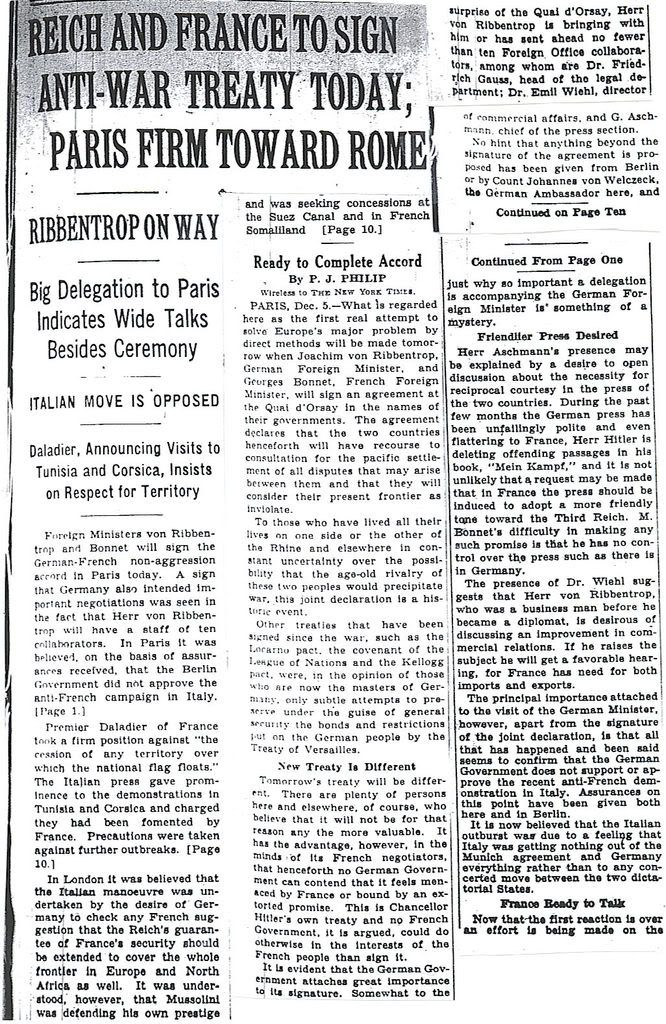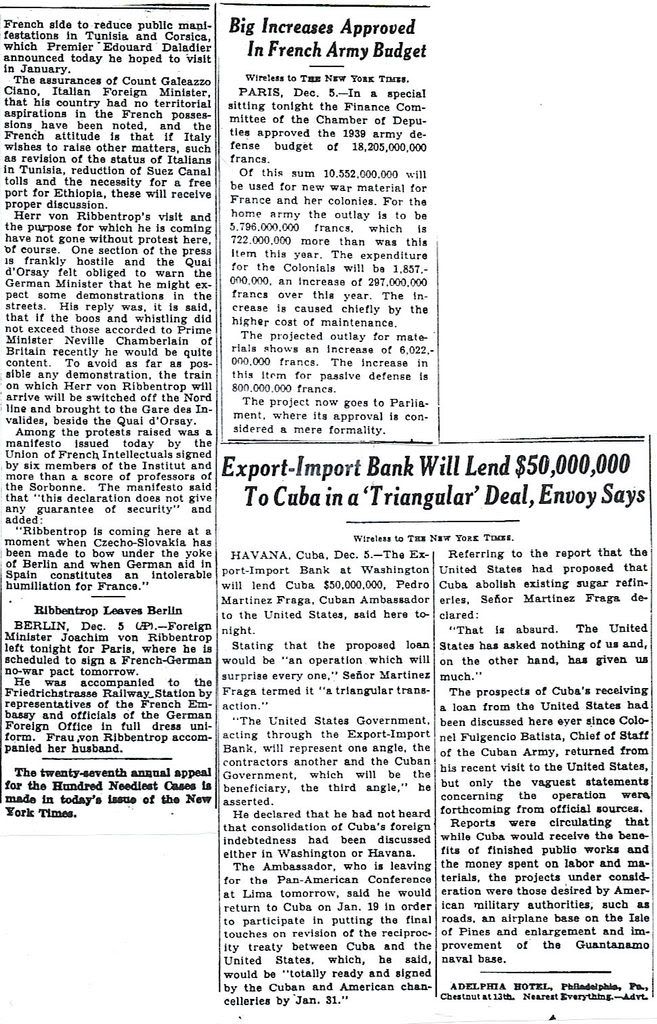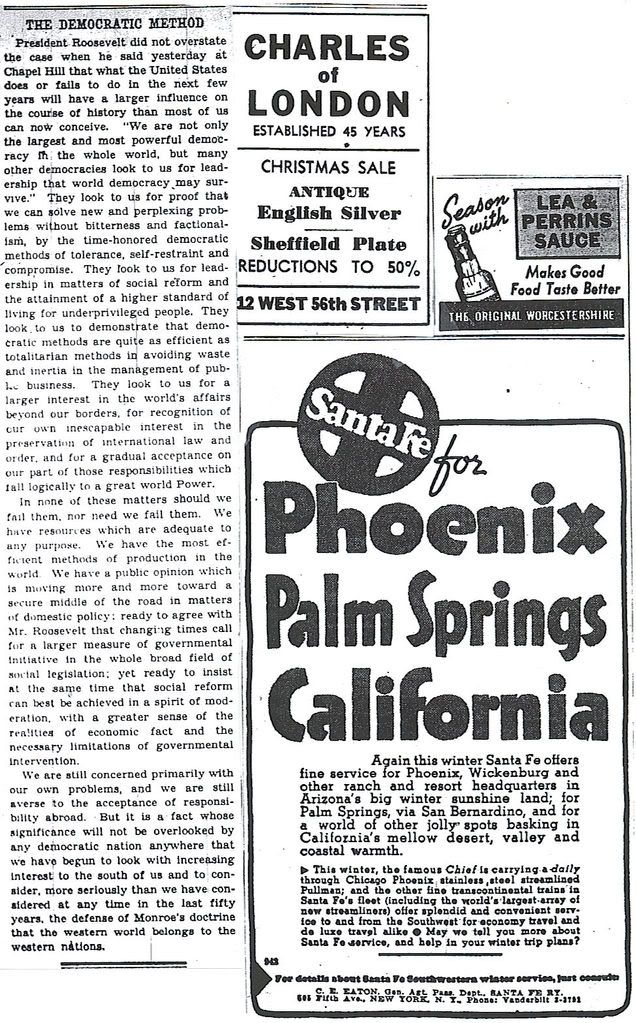
Posted on 12/06/2008 6:11:48 AM PST by Homer_J_Simpson



We have the most efficient methods of production in the world. We have a public opinion which is moving more and more toward a secure middle of the road in matters of domestic policy; ready to agree with Mr. Roosevelt that changing times call for a larger measure of governmental initiative in the whole broad field of social legislation; yet ready to insist at the same time that social reform can best be achieved in a spirit of moderation, with a greater sense of the realities of economic fact and the necessary limitations of governmental intervention.
Be careful when you wish for a larger measure of governmental initiative. You could wind up with entire industries in the hands of idiots.
Sheesh, how about “The Democratic Method”. Disgustingly familiar world view.
The intention of design hits reality head-on.
Please add me to your list.
Isn’t it strange how the politicians with a logo promise change, pride, hope....all delivered by government?
Maybe public opinion is about to shift. In November, voters rejected President Roosevelt’s attempt to “purge” some of his conservative detractors in the Democratic Party, and Ohio voters just sent to the US Senate Robert A. Taft, a solid conservative who may very well inject some life into that nearly moribund body.

France really will surrender to anyone.
The pact [guaranteeing the present frontiers of France and Germany (and thus again renouncing any German claims to Alsace-Lorraine) and proposing to settle any future differences by consultation] was duly signed in Paris on December 6, 1938, by the German and French foreign ministers. France, by that time, had somewhat recovered from the defeatist panic of the Munich days. The writer happened to be in Paris on the day the paper was signed and noted the frosty atmosphere. When Ribbentrop drove through the streets they were completely deserted, and several cabinet ministers and other leading figures in the French political and literary worlds, including the eminent presidents of the Senate and the Chamber, MM. Jeanneney and Herriot respectively, refused to attend the social functions accorded the Nazi visitor.
From this meeting of Bonnet and Ribbentrop stemmed a misunderstanding which was to play a certain part in future events. The German Foreign Minister claimed that Bonnet had assured him that after Munich France was no longer interested in Eastern Europe and he subsequently interpreted this as meaning that the French would give Germany a free hand in this region, especially in regard to rump Czechoslovakia and Poland. Bonnet denied this. According to Schmidt’s minutes of the meeting, Bonnet declared, in answer to Ribbentrop’s demand that Germany’s sphere of influence in the East be recognized, that “conditions had changed fundamentally since Munich.” This ambiguous remark was soon stretched by the slippery German Foreign Minister into the flat statement, which he passed along to Hitler, that “at Paris Bonnet had declared he was no longer interested in questions concerning the East.” France’s swift surrender at Munich had already convinced the Fuehrer of this. It was not quite true.
William L. Shirer, The Rise and Fall of the Third Reich, pp. 436-437
Here is Winston Churchill’s commentary on the event.
Late in November the Prime Minister and Lord Halifax visited Paris. The French Ministers agreed without enthusiasm to Mr. Chamberlain’s suggestion of his visit to Rome; but he and Lord Halifax were glad to learn that the French were now planning to imitate the British declaration on the future of Anglo-German relations signed by Chamberlain and Hitler at Munich. On November 27, 1938, M. Bonnet sent a message to the French Ambassador in Washington describing this intention of the French Government: “Mr. Neville Chamberlain and Lord Halifax, in the course of discussions held in Paris yesterday, clearly expressed their satisfaction at a declaration which they regard as being of a character, like that of the Anglo-German declaration, which would constitute an immediate contribution to the work of international appeasement.” For the purpose of these discussions Ribbentrop came to Paris, bringing with him Dr. Schacht. The Germans hoped not only for a general statement of good intentions, but for a concrete economic agreement. They obtained the former, which was signed in Paris on December 6, but even M. Bonnet was not prepared to accept the latter, in spite of considerable temptation to pose as the architect of Franco-German understanding.
The mission of Ribbentrop to Paris had also a deeper motive. Just as Mr. Chamberlain hoped to split Rome from Berlin, so Hitler believed that he could divide Paris from London. M. Bonnet’s version of his talk with Ribbentrop on this subject is not without interest:
In regard to Great Britain, I indicated to M. Ribbentrop the role which the improvement of Anglo-German relations must play in any developments of the policy of European appeasement, which was considered as the essential object of any Franco-German undertaking. The German Foreign Minister made efforts to throw upon the British Government the responsibility for the present state of affairs. The Government, and particularly the British Press, after having appeared to show, on the morrow of Munich, a certain comprehension, had adopted the most disappointing attitude towards the Government of Berlin. . . . The manifestations multiplied in Parliament by Messrs. Duff Cooper, Churchill, Eden, and Morrison, and certain newspaper articles, have been strongly resented in Germany, where one had not been able to restrain the reactions of the Press. I emphasized anew the fundamental and unshakable character of Anglo-French solidarity, indicating very clearly that a real Franco-German detente could not be conceivable in the long run without a parallel Anglo-German detente.
Winston S. Churchill, The Gathering Storm
A couple of minor points buried in those stories need to be pointed out.
First, in the Ex-Im Bank ‘loan’ to Cuba, they get around to the real purpose of the money near the bottom of the story - to upgrade facilities and improve infrastructure to air and naval bases to be used by the US. Now that sort of thing would run through the military budget, not commerce, but it shows that the US was getting ready for the war.
The second is what appears to be a veiled reference to Roosevelt’s plan to make sure that the US was dragged into the coming war: ‘what the US does or fails to do in the next few years will have a larger influence on history than most of us can now conceive.’
in the Ex-Im Bank ‘loan’ to Cuba, they get around to the real purpose of the money near the bottom of the story - to upgrade facilities and improve infrastructure to air and naval bases to be used by the US.
Maybe they should consider some sort of detention facility for captured enemy fighters.
I'd be curious to know which "plan" you refer to. Did Roosevelt in 1938 foresee the coming war? And what exactly was his "plan" to drag the US into it?
By 1938, pretty much everyone except perhaps Chamberlain could see that war was coming (or already underway, depending on your world view).
And, while not a fan of the New Dealer, I do give him credit for being able to engage in long range planning. Seventeen battleships were authorized between 1936 and mid 1940 (Although the order for the first one wasn't placed until 1937).
So do I. And, as you say, FDR was years ahead in starting to build up the US Navy (the Army is a different story).
But I don't actually know on which precise date Roosevelt (or Churchill, for that matter) decided that war was definitely coming. Nor do I know when he finally figured out a "plan" to "drag the US into war."
I suspect that "plan" didn't take full shape until the summer of 1941, after Hitler invaded the Soviet Union. But there is some very curious history in this regard.
For example, before Admiral Kimmel, Admiral Richardson was the commander at Pearl Harbor. Roosevelt replaced him in January 1941, when Richardson insisted on making Pearl Harbor ready for war. FDR would have none of it. That's one reason why Kimmel was also not ready, on December 7, 1941.
Srodborow, December 6, 1938
Dear Raphael,
I am on holiday in Srodborow. I worked in Zbaszyn for five weeks. Apart from Ginzberg, I am among the few who managed to hold out there for a long time. Almost all the others broke down after a more or less short time. I have neither the strength nor the patience to describe for you everything that happened in Zbaszyn. Anyway, I think there has never been so ferocious, so pitiless a deportation of any Jewish Community as this German deportation. I saw one woman who was taken from her home in Germany while she was still in her pajamas (this woman is now half-demented). I saw a woman of over 50 who was taken from her house paralyzed; afterwards she was carried all the way to the border in an armchair by young Jewish men. (She is in hospital until this day.) I saw a man suffering from sleeping sickness who was carried across the border on a stretcher, a cruelty not to be matched in all history.
In the course of those five weeks we (originally Giterman, Ginzberg and I, and after ten days I and Ginzberg, that is), set up a whole township with departments for supplies, hospitalization, carpentry workshops, tailors, shoemakers, books, a legal section, a migration department and an independent post office (with 53 employees), a welfare office, a court of arbitration, an organizing committee, open and secret control services, a cleaning service, and a complex sanitation service, etc. In addition to 10-15 people from Poland, almost 500 refugees from Germany are employed in the sections I listed above. The most important thing is that this is not a situation where some give and some receive. The refugees look on us as brothers who have hurried to help them at a time of distress and tragedy. Almost all the responsible jobs are carried out by refugees. The warmest and most friendly relations exist between us and the refugees. It is not the moldering spirit of philanthropy, which might so easily have infiltrated into the work. For that reason all those in need of our aid enjoy receiving it. Nobody's human feelings are hurt. Every complaint of bad treatment is investigated, and more than one "philanthropist" has been sent away from here.
We have begun on cultural activities. The first thing we introduced was the speaking of Yiddish. It has become quite the fashion in the camp. We have organized classes in Polish, attended by about 200 persons, and other classes. There are several reading rooms, a library; the religious groups have set up a Talmud Torah [religious school]. There are concerts, and a choir is active.
...Zbaszyn has become a symbol for the defenselessness of the Jews of Poland. Jews were humiliated to the level of lepers, to citizens of the third class, and as a result we are all visited by terrible tragedy. Zbaszyn was a heavy moral blow against the Jewish population of Poland. And it is for this reason that all the threads lead from the Jewish masses to Zbaszyn and to the Jews who suffer there.
Please accept my warmest good wishes and kisses from
Emmanuel
R. Mahler, "Mikhtavei E. Ringelblum mi-Zbaszyn veal Zbaszyn" ("Letters of E. Ringelblum from and about Zbaszyn"), Yalkut Moreshet, No. 2 (1964), pp. 24-25.
I assumed the camps where the German Jews were sent before the war were in Germany (which now includes the former state of Austria and the Sudetenland). This tells me the Polish government was working in concert with the Nazis. Strange.
Disclaimer: Opinions posted on Free Republic are those of the individual posters and do not necessarily represent the opinion of Free Republic or its management. All materials posted herein are protected by copyright law and the exemption for fair use of copyrighted works.